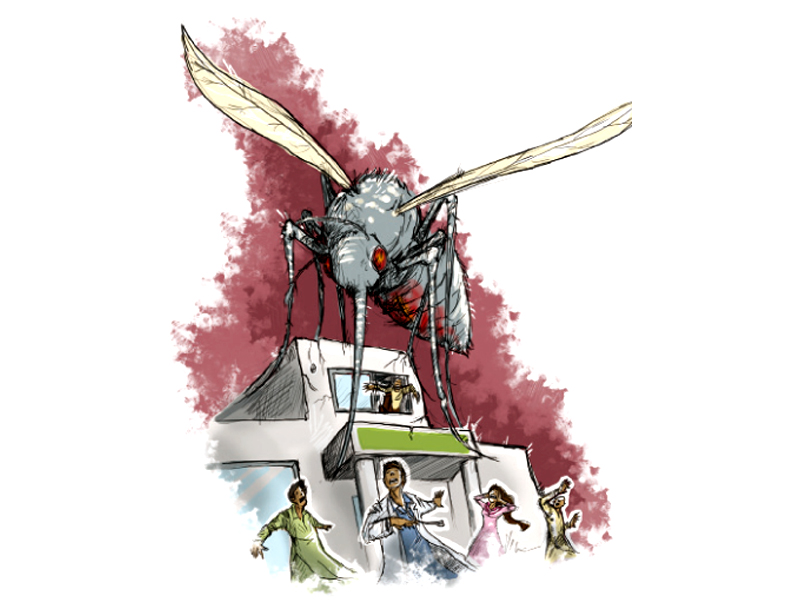
The accumulation of solid waste coupled with standing water during the ongoing monsoon season in the twin cities continue to be neglected by authorities despite the growing concern about the spread of dengue fever.
A National Health Services, Regulations and Coordination ministry official requesting anonymity said water leaking from broken pipes and garbage piling across Islamabad and Rawalpindi are prime breeding grounds for mosquitoes, including those that carry the dengue virus.
The official added that during periods of heavy rain, water accumulates in shopping bags, empty bottles, flowerpots, broken egg shells and crockery, all of which are known to be conducive to the reproduction of mosquitoes.
“Every year, millions of rupees are being spent on mass public awareness campaigns and on fumigation but very little is being spent on solid waste and water management,” he said.
While the Punjab Government demonstrated its initiative through a recently-observed anti-dengue day, a greater focus on cleaning up Islamabad would have been welcomed, he added.

Despite the Capital Development Authority’s (CDA) efforts to keep urban Islamabad clean, heaps of garbage continues to remain unattended for days on end.
Similarly, Bhara Kahu, Tarnol, Terlai, Golra Sharif, Alipur Farash and other areas of rural Islamabad are suffering from the lack of a proper waste management system.
CDA Health Services Director Dr Hasan Orooj, while speaking to The Express Tribune, said the civic agency’s Directorate of Health Services had recently penned a letter to all the relevant departments including environment, road, sewerage and enforcement, directing them to exercise greater vigilance after the conclusion of the monsoon season.
He added that polio workers have also been engaged to distribute pamphlets among the public to spread awareness on dengue fever prevention.
“CDA officials can’t enter each and every house to inspect their backyards or washrooms. The responsibility lies with them to keep their houses clean and avoid providing favourable conditions for mosquito breeding,” he said.
Orooj said the fumigation process, which started early this year, is currently being administered in high-risk areas, namely sectors G-6, G-7, F-8, E-11 and other vulnerable areas located near nullahs.
Rawalpindi District Health Officer (DHO) Dr Khalid Randhawa said the city’s municipal departments have been directed to work more actively.
“Rawalpindi is a big city which can’t be cleaned overnight. The departments are working hard --- hopefully, we will be seeing the desired results soon,” he said.
According to Holy Family Hospital (HFH) Infectious Diseases in-charge Dr Javed Hayat, 95 suspected cases of dengue fever have been reported at the city’s allied hospitals since the turn of the year. Of this figure, 93 have been reported at HFH, including one death.
Published in The Express Tribune, August 25th, 2013.

















COMMENTS
Comments are moderated and generally will be posted if they are on-topic and not abusive.
For more information, please see our Comments FAQ